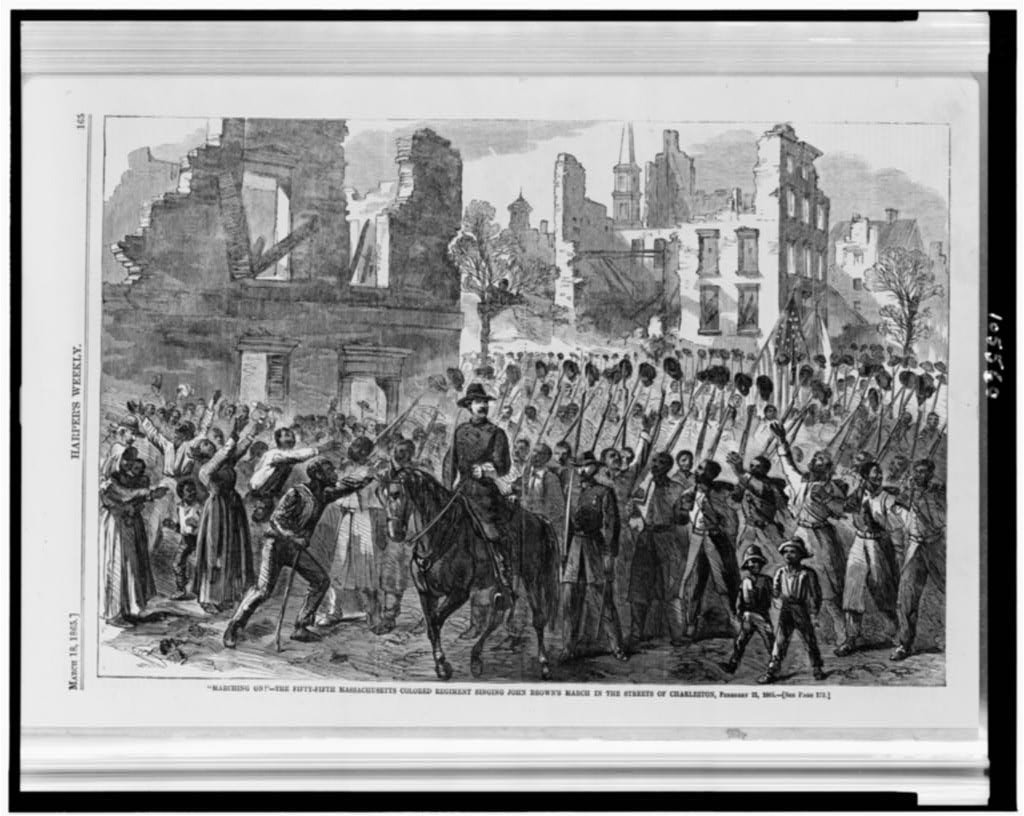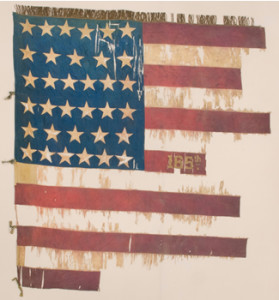DURYEA’s ZOUAVES, the white regiment stationed at Charleston which refused to allow the negro soldiers full swing, was ordered from the city for this heinous offence. Afterwards their colors were demanded of them. The Colonel refused to give them up, and was put under arrest. The Lieut. Col. gave up the flag staff and rubber cover, but the colors could not be found. The regiment was thereupon disarmed and sent to Fort Sumter to “expiate their crime,” the telegraph informs us. Their chief crime consisted in protecting white men and women from the insults and lawless conduct of newly freed slaves.
You can read a more complete and probably less biased account from The New-York Times at Seven Score and Ten. The Times had the Zouaves being sent to Morris Island instead of Fort Sumter. Apparently the same regiment, the 165th New York Volunteer Infantry (Second Battalion Duryea’s Zouaves) had a similar experience in Savannah in June, and members of the regiment were sent to Fort Pulaski. From the New York State Military Museum:
SAVANNAH.
Mutiny in the One Hundred and Sixty-Fifth New York – Loss of the Savannah War Steamer Leesburg–General Woodford Regulating the Public Schools of Savannah—Repairing the Railroads and Canals of Georgia, &c.
OUR SAVANNAH CORRESPONDENCE.
SAVANNAH, Ga., June 23, 1865
TROUBLE BETWEEN WHITE AND BLACK TROOPS.
On Wednesday some of the enlisted men of the One Hundred and Sixty-fifth New York Zouaves refused to do duty with the colored troops. It was at first reported that the whole regiment had mutinied, but this was incorrect. The matter was reported to Brevet Brigdier General Woodford, commanding the post, who, with much decision, at once arrested forth-three mutineers. Under orders from Brevet Major General Birge, they were at once sent to Fort Pulaski, to repent, in confinement, on bread and water, their attempt to dictate to the United States how its armies should be composed or troops classified. In justice to the officers of the One Hundred and Sixty-fifth, I must state that they had no knowledge of and gave no approval to the plot, and that they used all their efforts in bringing the real offenders to punishment. The balance of the regiment went to their duty without objection, and no further trouble has occurred or will occur.

“Marching on!”–The Fifty-fifth Massachusetts Colored Regiment singing John Brown’s March in the streets of Charleston, February 21, 1865 (Library of Congress)
The New York State Military Museum provides the image of the 165th’s National Color.

